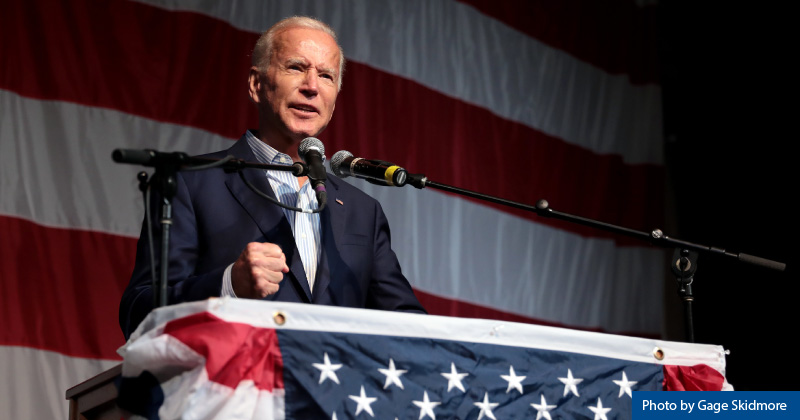- Who We Are
- Clinician Employment
- Publications
- Witness to Witness (W2W)
- El Premio Kugel & Zuroweste a la Justicia en la Salud
- Your Voice Matters: Photovoice Project
Mon, 01/25/2021 | by MCN Admin


By Timothy Dunn, Immigration Scholar and Professor of Sociology at Salisbury University
[Editor's Note: President Biden quickly pivoted to address immigration policy within the first hours of his presidency. His ambitious immigration plan has already been set into motion with yesterday's executive orders. Many patients experience health concerns and health care access issues as a result of their migrant, immigrant, and/or refugee status, which influence social determinants of health. To better understand the potential ramifications of these policies, we turn to Timothy Dunn, immigration scholar and Professor of Sociology at Salisbury University. Here are his summary and a few of his thoughts that he shared this week in response to the new immigration proposals, edited for clarity and style.]
[Here's a] brief overview of Biden’s really impressive immigration plan that he will be unveiling this week. The most important thing is that there does not appear to be a trade-off for more immigration benefits in exchange for harsher and expanded enforcement – which has been common in all previous proposals going back to IRCA in 1986. Note: most of proposed changes will need congressional action. Here are highlights:
- Path to citizenship for immigrants without authorization, for all who are present in US by January 1, 2021 and pass a background check. People could get permanent residency in five years and become citizens, three years later.
- Deferred Action for Childhood Arrival (DACA) & Temporary Protected Status (TPS) recipients could apply for permanent residency immediately.
- Recognition of the need to address migration root causes, especially economic hardship and personal safety problem, in sending countries, particularly Central America. No details on what they will do, but at least this important issue is on their radar.
- For border security, some vague call for increased technology use at ports of entry and between points of entry. No details on this, but they are clear there will be no more wall building.
- Wants to put Refugee and Asylum police “back to a more human and orderly process.” Little detail on this, and he has said previously they can’t reverse Trump’s policies entirely at once, including the Migrant Protection Protocols, known as the “Remain in Mexico” policy for asylum applicants. Still, this at least sounds better.
- Hopes to restart a previous program to grant Central American minors temporary legal residence in the US. That would be a big move.
- Wants to set up program to allow Central Americans approved for US residency to reunite with US citizen relatives, rather than wait for opening due to country quotas, which can mean years of waiting.
- Some more favorable visa policies – such as work permits for spouses and children of temporary worker visa holders, but the number H1B and H2B visas will not be increased. (H1B visas are already quite high, approximately 500,000 per year, including “trainees”.)
- Seeks to exempt children and spouses of green card holders (permanent residents) from country quotas. Currently, each country is allowed 20,000 Green Cards per year, which causes years of separation for family members. Many become immigrants without authorization.
- Immediate review of TPS programs that Trump was trying to eliminate, including to reinstate TPS for Salvadorans, Haitians, and Nicaraguans.
- Immediate repeal of the “Muslim Ban” denying visas to people from nine Muslim-majority countries, plus others.
- No word on ICE and deportations, but Biden has said previously that he wants to reduce deportations and that Obama’s aggressive actions on this -- he deported more in his first term than Trump -- were a mistake. This is something to keep a careful eye on.
- Also, previously Biden has said DACA would be back in full effect on day one, but courts had refused to let Trump kill it, so it’s still in effect. Biden will presumably enthusiastically implement it, though.
This all looks good overall, but chances of passing Congress are iffy. They will need ten Republicans to go along in the Senate, so some sort of compromise is likely. Still, this is a very good starting point. They have not compromised before even starting negotiations – which was the Obama strategy. And they can do a few things without Congress.
This should make it possible for more immigrants to seek services and participate more fully and openly in society. We can only hope!
Like what you see? Amplify our collective voice with a contribution.
Got some good news to share? Contact us on our social media pages above.
Return to the main blog page or sign up for blog updates here.







